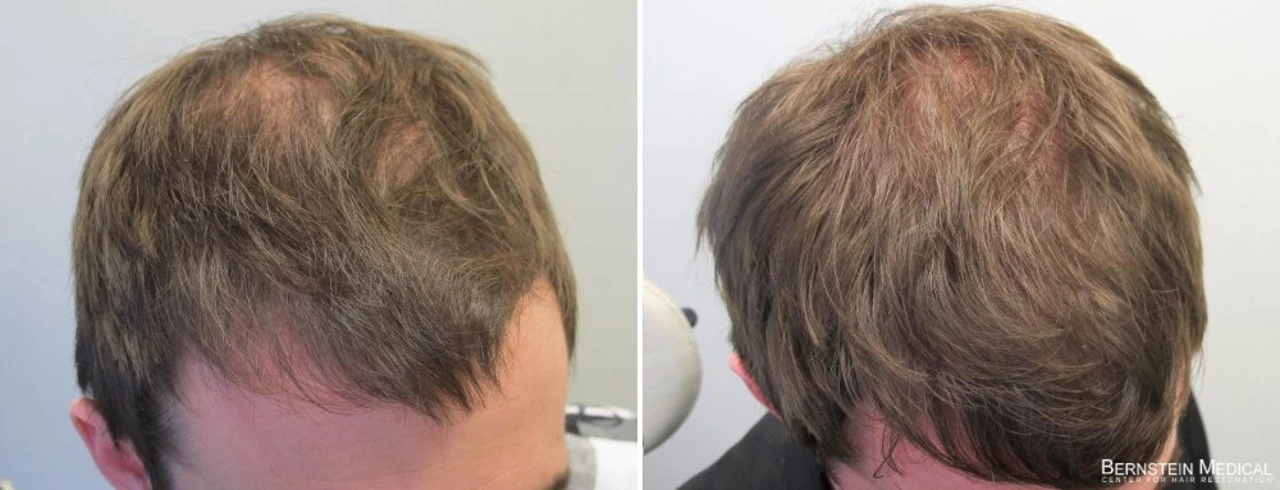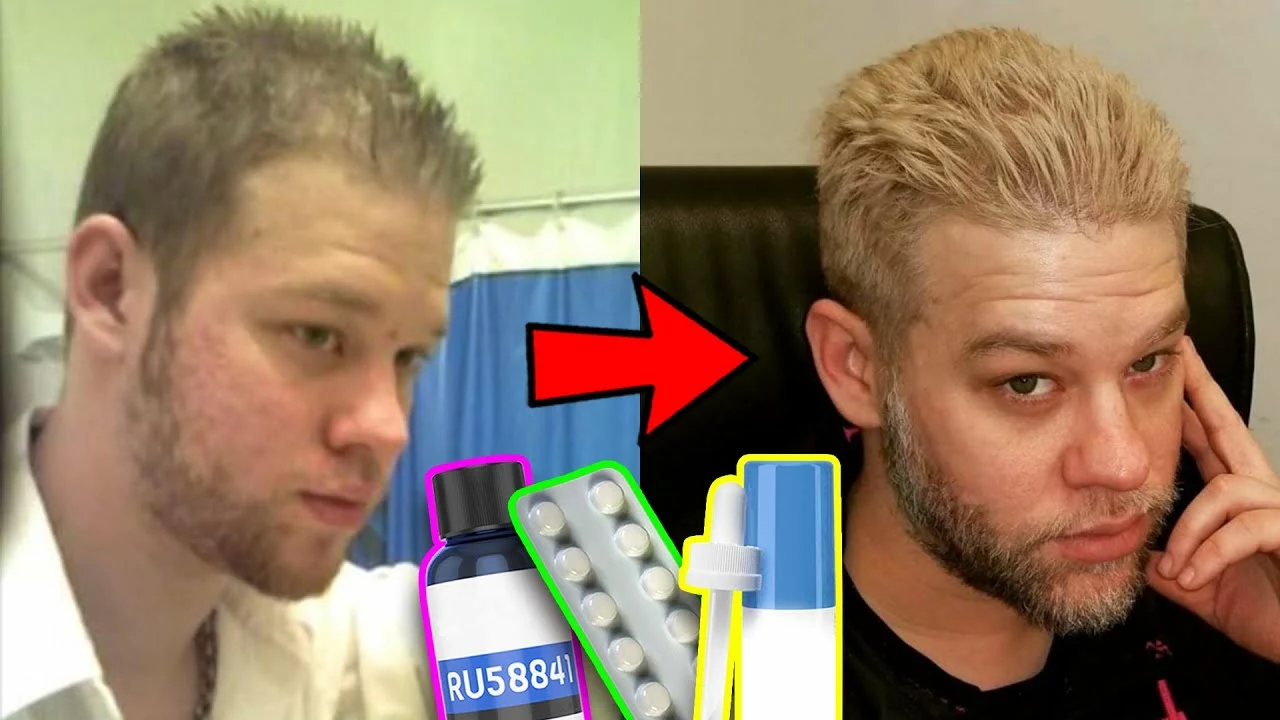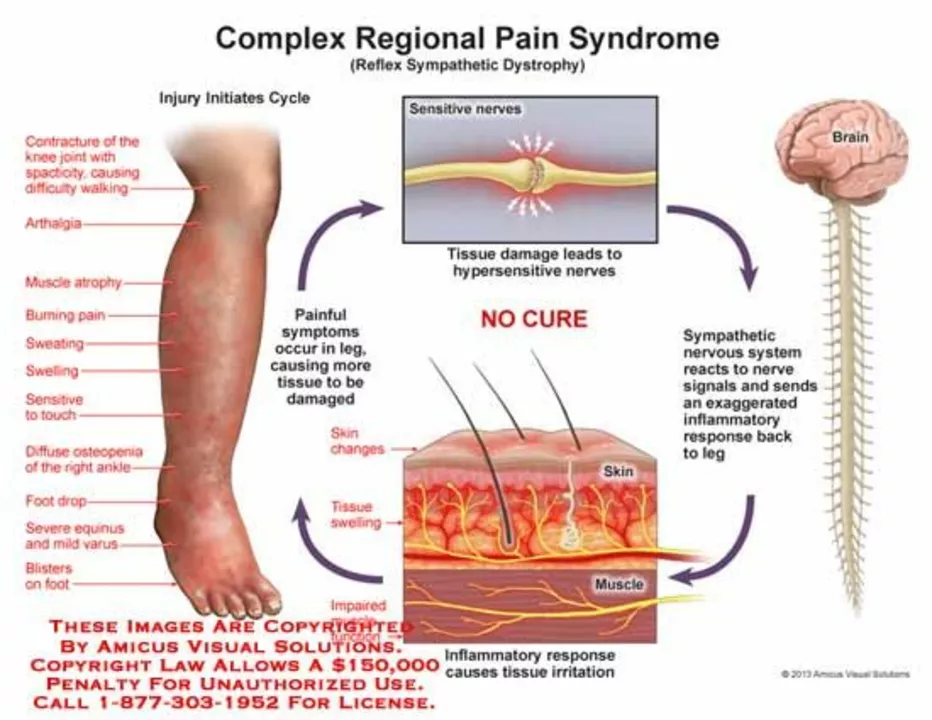The Pros and Cons of Minoxidilfinasteride: What You Need to Know Before Starting Treatment

Understanding Minoxidil and Finasteride
Before diving into the pros and cons of Minoxidil and Finasteride, it's essential to understand what these two substances are and how they work. Minoxidil is an over-the-counter drug, commonly known as Rogaine, that is applied topically to the scalp to promote hair growth. Finasteride, on the other hand, is an oral prescription medication, also known as Propecia, which works by blocking the production of a hormone called DHT (dihydrotestosterone) that is responsible for hair loss.
Both of these treatments have been proven to be effective in treating hair loss, but they come with their own set of advantages and disadvantages. In this article, I will discuss the pros and cons of Minoxidil and Finasteride so that you can make an informed decision before starting treatment.
Pros of Minoxidil: Effective Hair Growth and Easy Application
Minoxidil has been proven to stimulate hair growth in individuals suffering from hair loss. It works by dilating blood vessels, which allows for more blood flow to the hair follicles, promoting hair growth. This increased blood flow can result in thicker, fuller hair for many people.
One of the benefits of Minoxidil is its ease of use. It's available over the counter and comes in either a liquid or foam form that you can easily apply to your scalp. This makes it a convenient option for those who are looking for a simple, at-home solution for hair loss.
Cons of Minoxidil: Limited Effectiveness and Potential Side Effects
While Minoxidil has been shown to be effective in promoting hair growth, its effectiveness is limited. It's important to note that Minoxidil does not work for everyone, and it's most effective for individuals with early-stage hair loss. Additionally, Minoxidil must be used consistently and indefinitely to maintain hair growth. If you stop using the product, any new hair growth will likely be lost.
There are also potential side effects associated with Minoxidil use. Some individuals may experience scalp irritation, itching, and dryness. In rare cases, Minoxidil can cause more serious side effects, such as chest pain, rapid heartbeat, or dizziness. If you experience any of these side effects, it's essential to discontinue use and consult your doctor.
Pros of Finasteride: Long-Term Effectiveness and Slowing Hair Loss
Finasteride is an effective long-term solution for hair loss. It works by blocking the production of DHT, the hormone responsible for hair loss. This can help slow down the hair loss process and even promote hair regrowth in some cases. Many people find that Finasteride is more effective than Minoxidil, particularly when it comes to slowing down hair loss.
Another advantage of Finasteride is that it's an oral medication, meaning you only need to take a pill once a day. This can be more convenient than applying a topical solution like Minoxidil daily.
Cons of Finasteride: Prescription Required and Potential Side Effects
One of the downsides of Finasteride is that it requires a prescription from a doctor. This means you'll need to consult with your healthcare provider before starting treatment, which can be a barrier for some people. Additionally, Finasteride is not available over the counter, so you'll need to obtain your medication through a pharmacy.
Finasteride also comes with potential side effects. Some men may experience a decrease in libido, erectile dysfunction, or changes in ejaculation. These side effects are generally rare and may improve over time, but it's essential to discuss these potential risks with your doctor before starting treatment.
Combining Minoxidil and Finasteride: Maximizing Results
For some individuals, combining Minoxidil and Finasteride may provide the best results. Using both treatments can maximize the potential benefits, as the two substances work through different mechanisms to promote hair growth and slow hair loss. However, it's essential to consult with your doctor before combining these treatments to ensure that it's the right approach for you.
Keep in mind that combining Minoxidil and Finasteride may also increase the likelihood of experiencing side effects from either treatment. Be sure to monitor your symptoms and discuss any concerns with your healthcare provider.
Making the Right Decision: Consult with Your Doctor
Ultimately, the decision to use Minoxidil, Finasteride, or both will depend on your individual circumstances and the severity of your hair loss. Before starting any treatment, it's crucial to consult with your doctor to discuss your options and determine the best course of action for your situation.
Remember, hair loss treatments can take time to show results, so it's essential to be patient and consistent with your treatment plan. With the right approach, you can increase the chances of successfully managing your hair loss and enjoying a fuller head of hair.



Dawn Midnight
May 13, 2023 AT 15:57Minoxidil and finasteride each have a distinct pharmacologic profile, which means the decision to use one, the other, or both should be guided by a thorough understanding of their mechanisms. Minoxidil acts as a vasodilator, enhancing blood flow to hair follicles and thereby encouraging the anagen phase of hair growth. It is available over the counter, which eliminates the need for a prescription and makes it accessible to a wide audience. The topical formulation is easy to apply, and many users find the foam version less messy than the liquid. However, its efficacy is primarily limited to early‑stage androgenetic alopecia and it requires continuous, indefinite use to maintain results. Once treatment is discontinued, any newly grown hair may be shed within a few months. Side‑effects, while generally mild, can include scalp irritation, itching, and dryness, which may be mitigated by adjusting the application frequency or using a gentle cleanser. In rare cases, systemic symptoms such as tachycardia or dizziness have been reported, necessitating immediate medical attention. Finasteride, on the other hand, works by inhibiting the enzyme 5‑alpha‑reductase, which reduces dihydrotestosterone (DHT) levels-the primary hormonal driver of follicular miniaturization. This oral medication has demonstrated long‑term efficacy in slowing hair loss and can even promote regrowth in some patients. It is usually taken once daily, a convenience that many find preferable to daily topical applications. A prescription is required, which introduces an additional step but also ensures medical oversight regarding potential adverse effects. Sexual side‑effects such as decreased libido or erectile dysfunction are uncommon but reported, and patients should be counseled on these possibilities. Combining both agents may yield synergistic benefits, as they target distinct pathways in the hair loss process. Nevertheless, concurrent use can also amplify the risk of adverse reactions, making regular follow‑up with a healthcare provider essential. Ultimately, the choice of therapy should be individualized, taking into account the severity of loss, tolerance for side‑effects, cost, and personal preference. Patience is critical, as measurable results often take several months to become apparent. Regular monitoring and adherence to the prescribed regimen increase the likelihood of a favorable outcome.
Consultation with a dermatologist remains the gold standard for tailoring a treatment plan that aligns with the patient's unique clinical picture.
frank hofman
May 25, 2023 AT 09:33lol u think just slappin😍 a foam on ur head will fix everything?? minox is just a fad 🤦♂️ and finasteride? that pill is like a gamble 🎲 you might lose ur libido lol
Dannii Willis
June 5, 2023 AT 23:20I respect the enthusiasm, but it’s important to keep a balanced view. Both treatments have solid clinical evidence supporting them, yet they’re not miracle cures. Consistency and realistic expectations make the journey smoother.
Robyn Du Plooy
June 17, 2023 AT 13:06From a dermatological standpoint, the pharmacokinetics of topical minoxidil versus systemic finasteride are fundamentally different. Minoxidil’s vasodilatory effect targets the perifollicular microenvironment, while finasteride’s inhibition of 5‑α‑reductase modulates hormonal signaling at the cellular level. When you combine them, you’re essentially leveraging both angiogenesis and androgen blockade, which can theoretically maximize follicular survival. That said, patient adherence is a critical variable; the regimen can become cumbersome if not managed properly.
Boyd Mardis
June 29, 2023 AT 02:53Wow, that’s some serious science talk! Bottom line: you need to stick with the plan, otherwise all that effort is for nothing. Stay the course and you’ll see some results, trust me.
ayan majumdar
July 10, 2023 AT 16:40yeah super simple just read the label and follow the doc advice its not rocket science
Johnpaul Chukwuebuka
July 22, 2023 AT 06:26Exactly! Keep it easy, stay consistent, and you’ll get the best outcome. You’ve got this!
Xavier Hernandez
August 1, 2023 AT 15:57Hair loss? No shame, just grow.